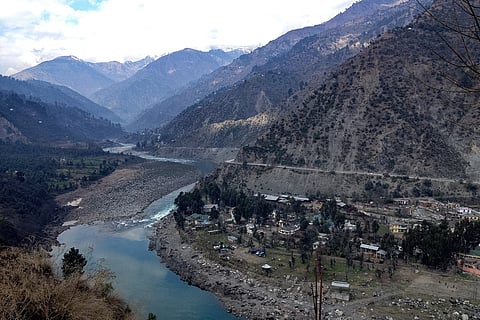

When Atta Mohammad reminisces about Waaz Khan, his voice softens. “When he spoke, we felt our hearts open,” the elderly resident of Chenab Valley recalls. “We were simple villagers, with little knowledge of the Holy Quran, but Waaz Khan Sahib’s words made the teachings of God accessible to us. He taught us to live with faith, kindness, and unity.”
This is the story of Waaz Khan, born Ali Muhammad in the 1930s in Tral, Jammu and Kashmir, who became a beacon of spiritual guidance in the Chenab Valley.
Waaz Khan’s life was one of humility and purpose. Beginning his journey as a wandering preacher in the 1960s, he carried a message of simplicity, Tawheed (the oneness of God), and Quranic teachings. Despite his absence from history books, the legacy he carved is preserved in the hearts of those whose lives he transformed.
Ghulam Nabi, another elder from the region, recounts how Waaz Khan’s presence brought unity. “He didn’t just teach religion; he showed us how to live. He taught us to be honest in our dealings, kind to our neighbours, and steadfast in our faith.”
Waaz Khan’s sermons transcended religious instruction; they were calls for spiritual awakening and community harmony. Walking tirelessly through villages, he reached the most remote corners of the Chenab Valley. In these areas, formal education and religious knowledge were scarce. His teachings resonated with both the illiterate and the educated, bridging divides and fostering unity.
Although he followed the Shafi school of thought, Waaz Khan chose to focus on the unifying principles of Islam rather than sectarian differences. His emphasis on Tawheed or oneness of God, compassion, and moral integrity encouraged mutual respect and collective purpose, even in a region predominantly adhering to the Hanafi school.
By avoiding contentious debates, he created an environment of peace and collaboration.
With no permanent home, Waaz Khan relied on the kindness of others. His life took a significant turn in Thathri, a village in the Doda district, where a local contractor, Maqbool Ahmed, gifted him a small piece of land. This gesture epitomized the deep bond between Waaz Khan and the communities he served.
His sermons, though simple, carried profound wisdom. He often urged people to trust God and guided them to navigate life’s challenges with faith and resilience. Atta Mohammad fondly recalls how Waaz Khan’s words brought entire villages together. “When he spoke, we listened. His words gave us a sense of direction and brought us closer as a community.”
Waaz Khan’s impact lives on through stories passed down by those who knew him. These oral histories preserve his teachings and provide insights into his contributions in ways written records cannot. In today’s fast-paced world, as India advances in technology and modernization, the significance of oral traditions in capturing the essence of unsung heroes like Waaz Khan cannot be overstated.
Modern technology offers opportunities to document and share these narratives. Digital recordings, video interviews, and social media platforms can bring these stories to a broader audience, ensuring the lessons of figures like Waaz Khan reach future generations. Platforms like YouTube and oral history websites can amplify these voices, keeping their legacies alive.
Lesson for the Future
Waaz Khan’s life is a testament to the power of grassroots spiritual leaders in shaping the moral fabric of rural communities. His emphasis on Tawheed and rejection of sectarianism created a shared sense of purpose in the Chenab Valley. By documenting these oral histories, we honour the legacies of unsung heroes who dedicated their lives to uplifting their communities.
For instance, Waaz Khan’s focus on educating the illiterate and uniting people underscores the importance of local spiritual leaders. His story illustrates how faith, humility, and community can overcome divisions and bring people together. Although his influence may not be recorded in national archives, it continues to shape the spiritual and cultural landscape of his region.
As the custodians of these memories age, the responsibility to preserve their stories grows. Historians, scholars, and communities must work together to document oral traditions. By doing so, India can celebrate its unsung heroes and ensure their lessons endure.
Waaz Khan’s life offers profound lessons in humility, faith, and the importance of community. His legacy is a reminder that even in an age of rapid change, the values of compassion and unity remain timeless. Preserving such stories connects us to our cultural and spiritual heritage, enriching our understanding of the diverse tapestry that defines India.
As his story continues to be shared, Waaz Khan’s teachings live on—a beacon of hope, faith, and unity for generations to come.
Have you liked the news article?